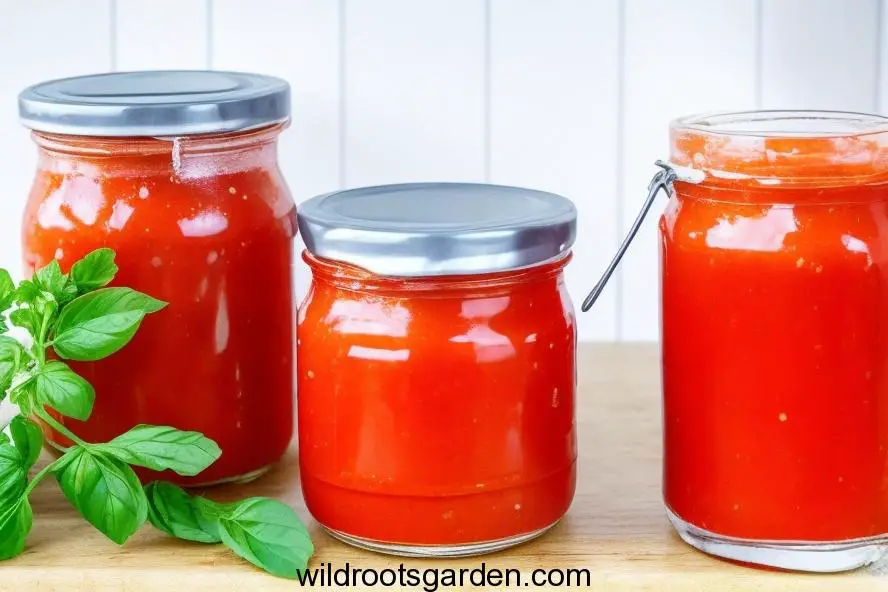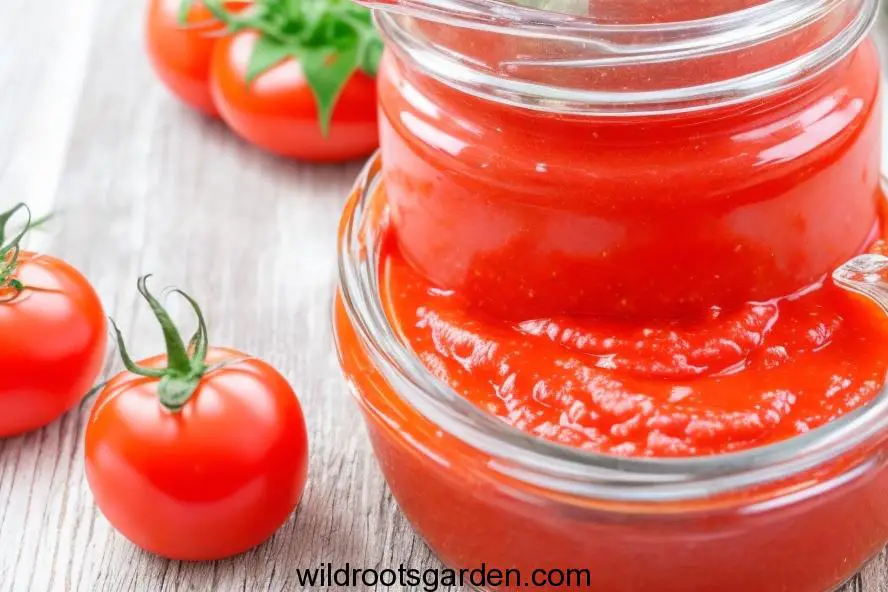How Long Does Tomato Paste Last in the Fridge? If you enjoy cooking, you are aware of how flexible and flavorful tomato paste is in many different meals. Tomato paste is a staple ingredient for preparing robust pasta sauces, savory stews, and fragrant curries. But what happens if you don’t utilize the entire can of tomato paste when you open it? In the refrigerator, how long does tomato paste last? In this article, we’ll delve into the topic of tomato paste storage and provide you with the vital advice and knowledge you need to keep your tomato paste tasty and fresh.
A useful component used to deepen flavor and improve flavor in a range of cuisines is tomato paste, which is tomatoes condensed into a paste form. It’s typical to have extra tomato paste after opening a can or tube because it’s a pantry essential. One might wonder how long tomato paste can be kept in the refrigerator before it starts to degrade.
Although tomato paste is renowned for its durability, many home cooks are nevertheless concerned about how long it will last in the refrigerator. Its freshness is mostly dependent on factors including packaging, storage conditions, and correct sealing. To make sure your culinary creations are both healthy and delicious, we’ll cover the typical shelf life of tomato paste in the refrigerator, provide advice on extending its storage time, and highlight indicators of decomposition.
Understanding Tomato Paste
When tomatoes are simmered until they become a thick, rich consistency, tomato paste is produced. The finished product is smooth and concentrated after it has been filtered to remove seeds and skins. Tomato paste can be kept for a long time because it contains little water.

Proper Storage of Tomato Paste
3.1 Choosing the Right Container
The container you select matters when it comes to storing tomato paste. Use a container with a tight seal to keep air and moisture from getting to the paste. This keeps it from spoiling and preserves its flavor.
3.2 Refrigeration Is Key
Any unused tomato paste should be transferred to an airtight container after opening the can and put there as soon as possible. The degradation process is slowed down by the chilly temperature, prolonging the freshness of the paste.
Determining Tomato Paste Shelf Life
4.1 Use-By Date vs. Opening Date
Tomato paste often comes with a “use-by” or “best-by” date printed on the packaging. However, this date refers to the quality of the unopened product. Once opened, tomato paste’s shelf life changes.
4.2 Signs of Spoilage
Watch for spoiled food indicators including a bad smell, mold development, or a change in color or texture. It is advised to throw away the tomato paste if you detect any of these symptoms.
Extending the Lifespan of Tomato Paste
5.1 Portioning for Convenience
Consider portioning the tomato paste before storing it to prevent constantly exposing the entire batch to air and moisture. To use as needed, separate smaller pieces should be frozen.
5.2 Freezing Tomato Paste
Freezing tomato paste is a great solution for even longer preservation. Use a silicone mold or ice cube tray to portion the paste for easy removal. Transfer the paste cubes to a freezer-safe bag after they have frozen, then mark the bag with the date.

Cooking with Tomato Paste
6.1 Flavor Enhancement
Tomato paste is a powerhouse of flavor. Add a spoonful to your soups, sauces, and stews to enhance the taste and color of your dishes.
6.2 Recipes and Ideas
- Create a robust pasta sauce by sautéing garlic and onions, adding tomato paste, and simmering with herbs and spices.
- Make a flavorful base for your chili by incorporating tomato paste into the mixture.
- Elevate your curry game by adding a touch of tomato paste for a rich and tangy twist.
FAQs About Tomato Paste Storage
Can I freeze tomato paste directly in the can?
No, it’s best to transfer the leftover paste to an airtight container before freezing.
Is discolored tomato paste safe to use?
Discoloration can be a sign of spoilage; it’s safer to discard it.
How long can frozen tomato paste last?
When stored properly, frozen tomato paste can last up to six months.
Can I use rusty or dented cans of tomato paste?
It’s advisable to avoid using tomato paste from compromised cans to ensure food safety.
Can I dilute tomato paste to make it last longer?
While possible, it may affect the flavor and quality of your dishes.
In conclusion, tomato paste is a useful kitchen accessory that can enhance the flavors of a variety of foods. It can keep its freshness and flavor for a long time if stored correctly in the refrigerator. You can extend the shelf life of leftover tomato paste and reduce food waste by adhering to a few basic rules, such as putting it in an airtight container, marking the date of opening, and keeping it constantly refrigerated.
Remember to perform a sensory evaluation and discard the tomato paste if you notice any off-putting changes in color, texture, or odor. By being mindful of storage practices and potential signs of spoilage, you can make the most of your tomato paste, ensuring that your culinary creations continue to shine with vibrant and delectable flavors.

